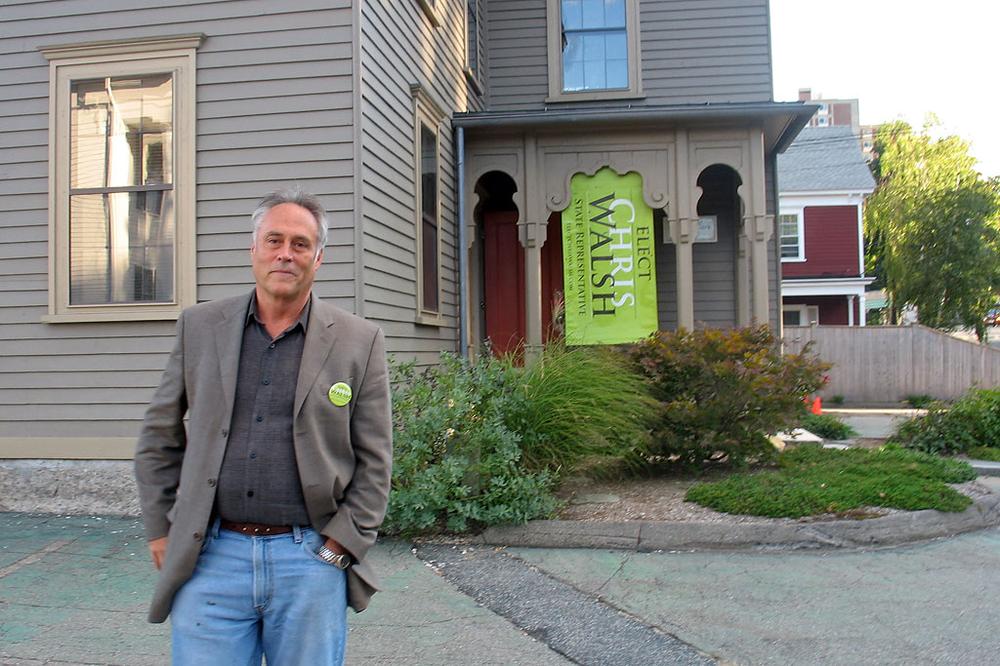Advertisement
Can Framingham Live With The Diversity It Loves?

Many people here, including elected Town Meeting member Steve Orr, say economic, social, physical and ethnic diversity make the community special.
“Framingham is a gem," Orr says. “People who don’t know Framingham think of Route 9 and all the traffic and the crummy stores. Framingham is an incredibly diverse community. People who live in neighboring towns are all jealous of the diversity we have in this town."
Jealous, parents say, because the range of countries represented in Framingham schools — more than 50 at one count — teaches children tolerance and gives them a better understanding of the world. But some minorities say cultures that blend in the classroom separate again outside the school walls. Here’s one example.
I stop at Lana’s Beauty Salon in downtown Framingham and walk up to Luciana Sousa, who is halfway through a manicure. She gives me a wary eye and asks, "You’re not the kind of people like the people who hates the Brazilians?"
Sousa wants to make sure I’m not associated with a man from Marlborough who aired offensive images on a community cable station a few years ago.
"I remember once that he had a Brazilian flag and he peed on the flag," she says.
'Diversity' Feels Like Discrimination
Sousa and her husband own a painting and cleaning business and their own home in Framingham. "I want to stay in Framingham," she says. "I know it's going to grow more and more and more. The town has a lot to offer."
But Sousa does not feel connected outside the Brazilian community. The diversity that many white parents say is an asset in Framingham schools feels more like discrimination to Sousa when she picks her son up at the end of the day.

"They (the white parents) don’t compliment to you, they don’t talk to you," says Sousa. "They have the American group altogether, they know each other, they set up playtimes and everything with the kids but never with our kids."
Sousa admits she doesn’t reach out either, feeling her English is not yet good enough.
Across the street from Lana’s there are signs of cultures mixing in Framingham. A recent Indian immigrant just opened a convenience store with separate shelves for Brazilian, Mexican and Central American favorites. A man from Northern England and his wife, an American, are opening Limey’s Pub this week, which will offer a variety of stouts to go with bangers, mash and other traditional pub foods.
"The working class is very much a part of the fabric of the community and a part of the community that helps keep the community moving along," says Jerry Desilets, the planning director at the South Middlesex Opportunity Council.
SMOC is a large social service agency that is suing the town. The organization claims Framingham discriminated against disabled residents when the town tried to block expansion of a substance abuse treatment program.
Janet Leombruno, an elected Town Meeting member, says the case has hardened many people against the organization.
"Not only did folks feel that SMOC had taken advantage of our hospitality for many years," Leombruno says, "but then as a slap in the face to then be sued saying that we were not accommodating."
The rift highlights challenges in Framingham of bridging the town's wide economic diversity. North of Route 9, Framingham hosts Genzyme, Bose, a raw milk farm, mansions on a hill and middle-class homes.
The South Side
Former Selectman John Kahn gives me a tour of the economic diversity in Framingham. "This is where people would say the south side really starts, because you’ll notice a significant change in the nature of the homes."
South of the town’s main artery, we drive through working-class neighborhoods, past Framingham State University and Metrowest Medical Center, to the state women’s prison on the southern border and relics of Framingham’s manufacturing past.
"A lot of people think Framingham has almost no identity, but it's really the opposite. The problem is it’s got so many you really can't settle on one."
Chris Walsh, Democratic candidate for State House
"I'll show you the General Motors plant, which was a huge employer," Kahn says. "That’s been gone, 25 to 30 years. It was vacant for a long while and it's now an auto auction place."
"Framingham is wildly, wildly diverse, so trying do politics in a place like this is really fascinating," says Chris Walsh, an architect who just won the Democratic primary in the race for state representative.
Diversity leaves Framingham lots of room to define its identity, Walsh says. "A lot of people think Framingham has almost no identity, but it's really the opposite. The problem is it’s got so many you really can't settle on one. But all of the pieces haven't always played well together. It's sort of like choppy water — there's a lot of stuff going back and forth."
Walsh hopes to bring residents together under a common vision of a small independent city. He and other town leaders want to build on the strengths of downtown and Framingham’s neighborhood centers, changes they hope will reinforce the strength of difference in Framingham.
This program aired on September 20, 2010. The audio for this program is not available.
